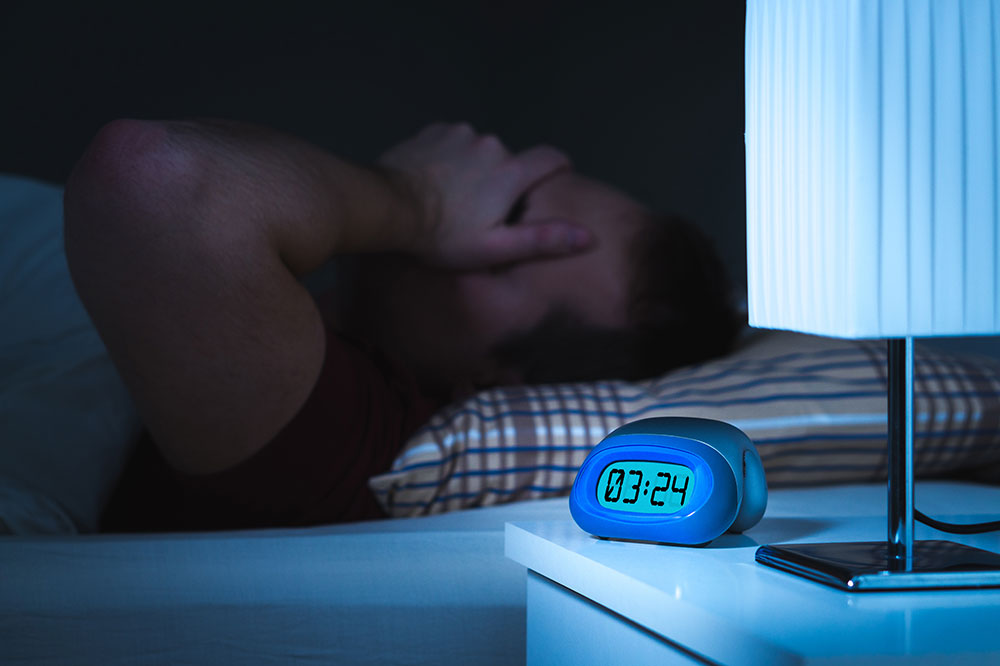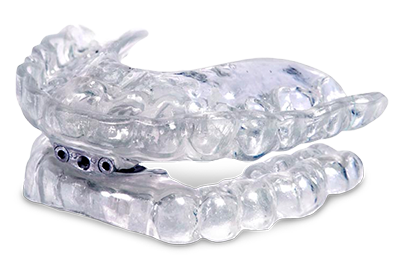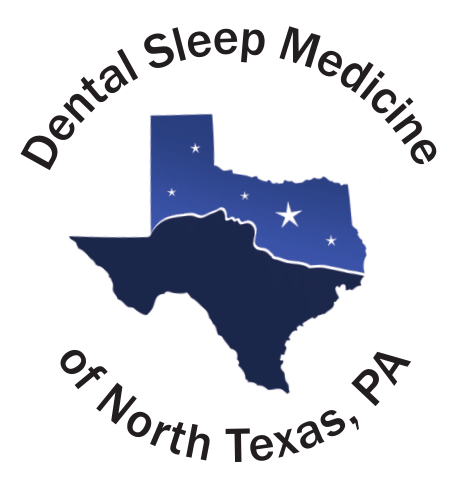Understand Your Symptoms
Are you constantly feeling fatigued despite getting a full night’s sleep? Does your partner complain about your loud snoring? You may be suffering from sleep apnea, a potentially serious sleep disorder affecting millions of Americans.
At Dental Sleep Medicine, Dr. Scott Clinton is dedicated to helping patients in Waxahachie, TX, and surrounding areas find effective solutions for sleep apnea and snoring issues. Read on to learn more about sleep apnea and the treatments we offer. You can also call our Waxahachie, TX, dental office at (972) 737-5337 to schedule an appointment today.

What Is Sleep Apnea?

Sleep apnea is characterized by repeated breathing interruptions during sleep, often caused by an obstructed airway. The most common type is obstructive sleep apnea (OSA), where the throat muscles and tissues over-relax, blocking the airway. Central sleep apnea, another type of sleep apnea caused by a neurological issue, is less common.
Anyone can develop OSA, but you’re more at risk if you’re overweight, smoke, or have a thicker neck, and the risk increases as you grow older.
Sleep Apnea & Snoring
About 90 million Americans snore in their sleep, and about half of all people who snore suffer from obstructive sleep apnea. The two are often confused, which is why many people affected by sleep apnea never seek treatment. It’s important to have a proper sleep study so your condition can be accurately diagnosed and treated.
Note that both sleep apnea and snoring can be relieved with treatment. Depending on the diagnosis, our experienced Waxahachie sleep dentist can help you find the sleep treatment that’s right for you.
The first step to improving sleep quality for both you and your partner is a sleep study. Even if you don’t suffer from sleep apnea, snoring can cause your partner to suffer from sleep deprivation, which can be detrimental to their long-term health and your overall relationship. We would gladly refer you to a sleep specialist we know and trust.

How Sleep Apnea Affects Your Overall Health

Sleep apnea and your health go hand-in-hand. In fact, they can reinforce each other. People who are overweight are more likely to suffer from sleep apnea, and people with sleep apnea are more likely to suffer from high blood pressure, heart disease, and weight gain.
Up to 80 percent of patients with type 2 diabetes also experience sleep apnea, while the sleep disorder can also raise the likelihood of adult asthma and acid reflux. Untreated sleep apnea can also impact your cognitive function and emotional regulation, putting you at higher risk of developing mood disorders or exacerbating existing ones.
It’s important to seek treatment for sleep apnea if you experience its symptoms precisely because of these connections. Sleep apnea, if left untreated, can kill. And with solutions as convenient as an oral appliance, you can finally get the sleep you deserve.
Diagnosing Sleep Apnea
The first step in treating sleep apnea is undergoing a sleep study, also known as polysomnography. This test monitors your sleep patterns, breathing, heart rate, and bodily movements to determine the presence and severity of sleep apnea. Dr. Clinton can refer you to a trusted sleep specialist for an accurate diagnosis.

Treating Sleep Apnea: CPAP & Its Alternative

CPAP (Continuous Positive Airway Pressure) therapy is the traditional treatment for sleep apnea. It involves wearing a mask connected to a machine that delivers pressurized air to keep your airway open during sleep. However, many patients find CPAP machines bulky, noisy, and uncomfortable.
For those with mild to moderate sleep apnea, oral appliance therapy offers a more convenient and comfortable alternative. These custom-fitted dental devices, also known as sleep apnea mouthpieces or mandibular advancement devices (MADs), reposition the jaw and tongue to prevent airway obstruction during sleep.
Frequently Asked Questions
Why does sleep apnea occur?
Sleep apnea occurs when you can’t breathe while asleep — most often resulting from some airway obstruction.
While you may be able to breathe during the day, your throat and mouth muscles relax when you sleep. If you can’t breathe while asleep, your brain triggers your body to wake up and resume airflow momentarily. Though you may wake up many times throughout the night, it’s possible that you won’t remember any of those instances.
Is sleep apnea the same as snoring?
While snoring is a common symptom of sleep apnea, not everyone who snores has sleep apnea. However, if you experience loud, persistent snoring accompanied by other symptoms like daytime fatigue or gasping during sleep, it’s advisable to undergo a sleep study to rule out sleep apnea.
What are the long-term effects of untreated sleep apnea?
Untreated sleep apnea can have severe long-term consequences, including an increased risk of high blood pressure, heart disease, stroke, type 2 diabetes, depression, and cognitive impairment. It’s crucial to seek timely treatment to mitigate these risks and improve your overall health and quality of life.
Can sleep apnea be cured permanently?
While there’s no permanent cure for sleep apnea, various treatments can effectively manage the condition and alleviate symptoms. CPAP therapy and oral appliances are highly effective in improving sleep quality and reducing the health risks associated with sleep apnea.
Get Your Quality of Sleep Back
Don’t let sleep apnea continue to disrupt your life and compromise your health. Schedule a consultation with Dr. Scott Clinton at Dental Sleep Medicine by calling (972) 737-5337 or using our online form. Our team is dedicated to helping patients in Waxahachie, Red Oak, Midlothian, Maypearl, Ennis, TX, and surrounding areas find the right sleep apnea treatment solution for their needs.
